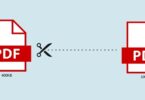When purchasing mutual fund units, investors are exposed to investment risks such as liquidity risk, trading volume, settlement risk, and possible principle loss. With market volatility, mutual fund performance varies. So that the market volatility doesn’t affect your savings, it is crucial to know the mutual fund category.
Top 5 Reasons to Choose a Balanced Advantage Fund

Most investors choose modest portfolios to minimize risk or high-gain ones to profit significantly. However, hybrid funds like ICICI balanced advantage fund provide you the opportunity to invest in the middle, which is the best course of action.
What is a Balanced Advantage Fund?
Balanced Advantage Funds BAFs or Dynamic Asset Allocation Funds, known as hybrid funds, hold debt and equity. Simply put, balanced funds provide you with the best of both worlds by maintaining a balance between the asset classes.
Who is eligible for a Balanced Advantage Fund?
You can select a Balanced Advantage Fund:
- When you wish to reduce the risk associated with complete equity exposure
- Choose a Balanced Advantage Fund when you want to earn substantially higher returns than debt funds.
- As Balanced Advantage Funds such as ICICI Prudential Mutual Fund can allocate up to 80% of their assets to equity and just 30% to debt, their allocation to debt and equity can be drastically changed or increased depending on the state of the market.
Why should you invest in Balanced Advantage Mutual Funds?
There are several advantages in comparing balanced advantage funds to regular balanced mutual funds.
Diversification
BAFs have diverse portfolios of large-cap and mid-cap equities, much like any equity mutual fund. BAFs such as ICICI balanced advantage fund typically have the stability of large, well-established companies and the incredible development potential of mid-sized enterprises because of their diverse stock mix. Investment portfolio diversification helps investors with a risk-adjusted return and prevents concentration hazards from sabotaging wealth building.
Dynamic Asset Allocation
Balanced advantage fund managers employ a dynamic asset allocation technique. During periods of economic expansion when markets are bullish, the fund manager may switch certain investments from debt to equity securities. In contrast, fund management may switch some investments from equity to debt instruments during economic downturns—mutual funds with a balanced advantage help to reduce risk while pursuing higher returns.
Constant Investment Growth
Returns provided by BAFs like ICICI Prudential Mutual Fund are much more stable than those of a pure equity fund as they can lessen the fall in investment valuation during market downturns. It is important to note that a dynamic asset allocation approach typically outperforms the indices by a significant margin when returns from important indexes are minimal. An equity-oriented, balanced advantage fund is taxed at 15% for the first 12 months and then at 10%. Consequently, you can save a sizable sum of money on taxes if you plan investment for the medium or long term.
Less Volatility
For first-time equity investors, who typically have little experience investing in the stock market and are very risk-averse, balanced funds can be an excellent investment option. As professionals handle your money, you don’t need to worry about asset allocation. Balanced Advantage Mutual Funds outperform Balanced Funds as they can perform well in any market environment and offer adequate returns to risk-averse investors.
Valuation Methodology
BAFs use the price-to-book (P/B) valuation model for equities, which goes against the conventional practice of valuing the firms on a price-to-earnings (P/E) basis. Financial analysts point out that compared to the P/E method, the P/B model is less volatile. When determining the intrinsic worth of the companies that make up the scheme’s portfolio, BAFs, namely ICICI balanced advantage fund, are better equipped with the P/B model. It’s important to note that book value is a balance sheet item and is, therefore, more reliable when it comes to investments.
Final Thoughts
BAFs may enable investors to reach their financial objectives at a relatively lower risk than equities funds. All investors, especially newcomers to the market seeking a secure yet active investment portfolio, do well with Balanced Advantage funds.
The fund managers will watch over your money and behave according to market trends, so you won’t need to monitor the market continually. It is a clever investment strategy that offers you significant profits without carrying a lot of risks.







Leave a Comment
You must be logged in to post a comment.